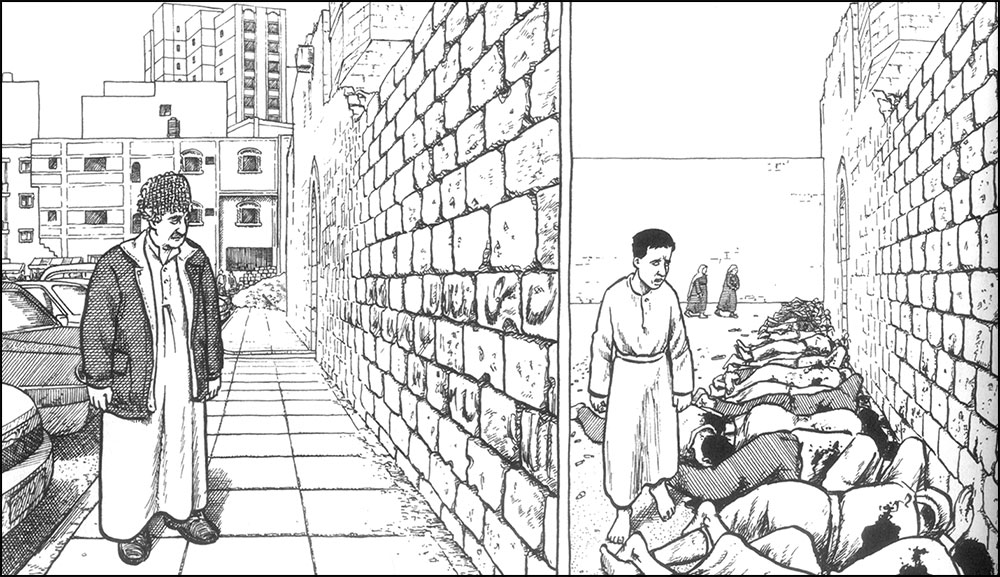Learn about the history of the Palestinian struggle for freedom, equality and justice by exploring major events in the history of their oppression on this day of the year.
5 April
HUNDREDS EXECUTED IN FRONT OF THEIR FAMILIES
On this day in  1956, Moshe Dayan ordered the shelling of Gaza City's centre with 120mm mortars, killing 58 civilians and four Egyptian soldiers. Later in the year during Israel’s invasion of Egypt, Israeli soldiers under Dayan’s command invaded Gaza and carried out mass killings in Khan Younis and Rafah. Hundreds of males over the age of 15 were lined up in public, beaten and shot dead in front of their friends and relatives to crush armed resistance. The UN recorded 275 Palestinians killed in Khan Younis and 111 in Rafah.
1956, Moshe Dayan ordered the shelling of Gaza City's centre with 120mm mortars, killing 58 civilians and four Egyptian soldiers. Later in the year during Israel’s invasion of Egypt, Israeli soldiers under Dayan’s command invaded Gaza and carried out mass killings in Khan Younis and Rafah. Hundreds of males over the age of 15 were lined up in public, beaten and shot dead in front of their friends and relatives to crush armed resistance. The UN recorded 275 Palestinians killed in Khan Younis and 111 in Rafah.
تم إعدام المئات أمام ذويهم
5 أبريل
في مثل هذا اليوم من عام 1956 ، أمر موشيه ديان بقصف وسط مدينة غزة بقذائف هاون 120 ملم ، مما أسفر عن مقتل 58 مدنياً وأربعة جنود مصريين. في وقت لاحق من العام أثناء الغزو الإسرائيلي لمصر ، غزا جنود إسرائيليون بقيادة دايان غزة ونفذوا عمليات قتل جماعي في خان يونس ورفح. واصطف المئات من الذكور فوق سن 15 عاما في الأماكن العامة وتعرضوا للضرب والقتل بالرصاص أمام أصدقائهم وأقاربهم لسحق المقاومة المسلحة. وسجلت الأمم المتحدة مقتل 275 فلسطينيا في خان يونس و 111 في رفح
Patrick Cockburn in the New York Times
"...two massacres that happened more than half a century ago, stirred up little international attention and were forgotten outside the immediate circle of the victims. The killings took place during the Suez crisis of 1956, when the Israeli Army swept into the Gaza Strip, the great majority of whose inhabitants were Palestinian refugees. According to figures from the United Nations, 275 Palestinians were killed in the town of Khan Younis at the southern end of the strip on Nov. 3, and 111 died in Rafah, a few miles away on the Egyptian border, during a Nov. 12 operation by Israeli troops. Israel insisted that the Palestinians were killed when Israeli forces were still facing armed resistance. The Palestinians said all resistance had ceased by then...
"Governments and the news media alike forget that atrocities live on in the memory of those most immediately affected. Sacco records Abed El-Aziz El-Rantisi — a leader of Hamas (later killed by an Israeli missile), who in 1956 was 9 and living in Khan Younis — describing how his uncle was killed: “It left a wound in my heart that can never heal,” he says. “I’m telling you a story and I am almost crying. . . . They planted hatred in our hearts.”
"The killings in Khan Younis were relatively straightforward, according to eyewitnesses and a few survivors. The men of the town were told to line up in the main square and were then systematically shot so their bodies lay in a long row. Some who stayed in their homes were killed there.
"The episode in Rafah was more complicated and took place over the course of a day, when people were summoned to a school so the Israelis could determine if they were guerrillas or soldiers. Here there were many more survivors than in Khan Younis; they describe how some were shot on their way to the school and others beaten to death with batons as they entered the school courtyard."
The extracts above are from Patrick Cockburn's review of Joe Sacco's Footnotes in Gaza, a journalistic graphic novel published in 2009. The book describes the author's quest to get to the bottom of what happened in Khan Yunis and in Rafah in the Gaza Strip in November 1956.
10-minute video: Joe Sacco on the early history of Israel
